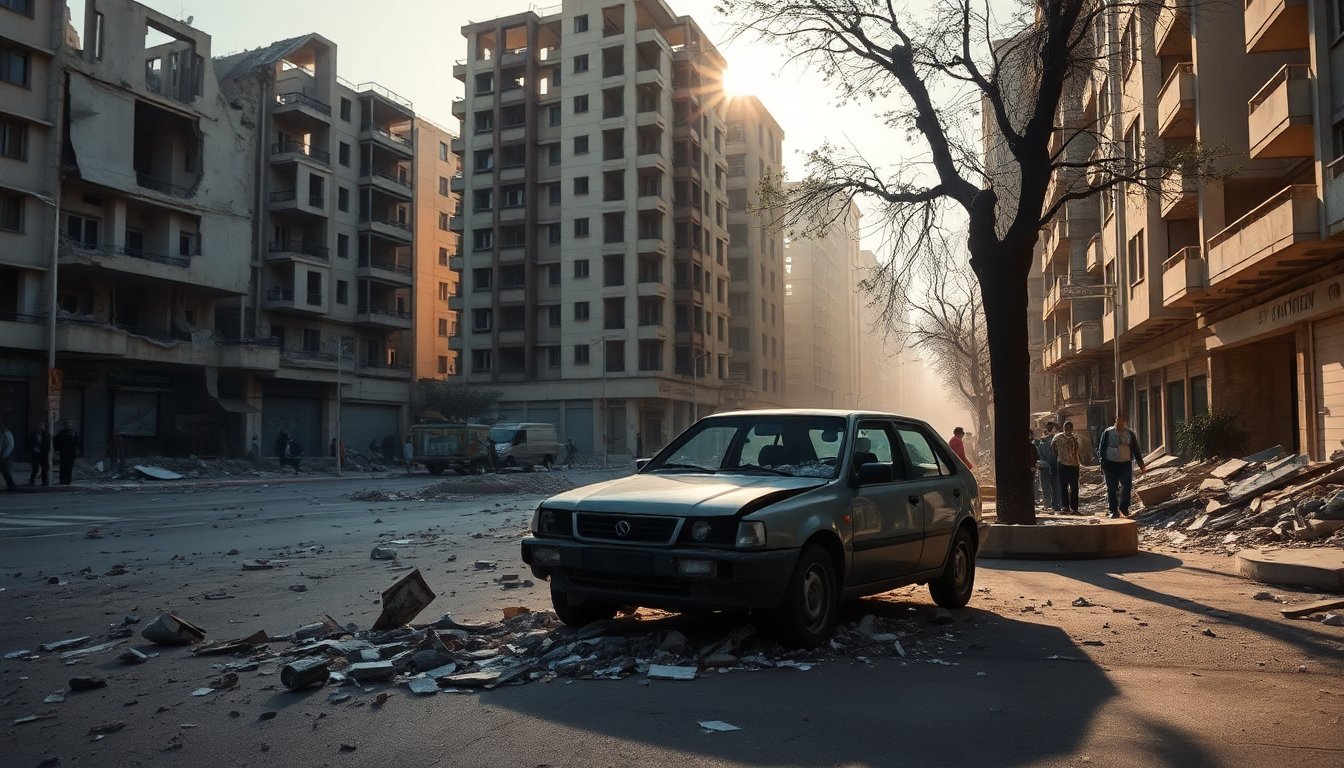Table of Contents
For several months, peace talks between Israel and Hamas had stalled, marked by increasing tensions and little progress. A recent missile strike, however, unexpectedly shifted the dynamics of these discussions. This incident, while destructive, may provide a critical turning point in the ongoing conflict, sparking renewed hope for a peaceful resolution in the region.
The context of the conflict
The conflict between Israel and Hamas stems from a complex blend of political, territorial, and ideological issues. Numerous peace efforts have historically failed, often hampered by mutual distrust and escalating violence. The situation has reached a critical point, with both sides firmly entrenched in their positions and reluctant to yield.
International mediators, including various countries and organizations, have consistently sought stability in Gaza. However, dialogue has remained stagnant. This lack of genuine engagement has worsened the humanitarian crisis, significantly impacting the local population’s suffering.
Missile strike prompts reevaluation of strategies
A missile strike has surfaced, leading to a significant reassessment of tactics by both involved parties. This incident highlights the precarious nature of the current situation and underscores the pressing need for a change in strategy.
The aftermath of the strike was marked by chaos, with both sides exhibiting familiar patterns of retaliation. However, this escalation also presented a pivotal opportunity. Leaders and negotiators acknowledged the unsustainable status quo, advocating for a renewed focus on dialogue and negotiations.
Responses to the missile strike
The recent missile strike prompted a spectrum of reactions from political leaders, analysts, and the public. Critics labeled it a reckless act, arguing that it jeopardized lives and added complexity to an already fragile peace process. Conversely, some regarded it as a crucial wake-up call for all parties involved.
The international community closely monitored the situation, with numerous countries urging renewed efforts to mediate peace talks. This increased urgency fostered an environment ripe for dialogue, leading both sides to consider the potential for negotiations.
Negotiating peace from a position of strength
As discussions resumed, both Israel and Hamas approached the negotiating table with a renewed perspective. A recent missile strike inadvertently shifted their focus from military tactics to diplomatic solutions. This change enabled critical discussions about ceasefires, humanitarian aid, and long-term conflict resolution.
Each side was compelled to reassess its objectives and the feasibility of achieving them through dialogue rather than continued aggression. The recognition that escalating violence was counterproductive opened avenues for compromise, facilitating the exploration of shared interests.
Potential pathways to resolution
The resumption of talks after the missile strike marked a pivotal moment in the ongoing peace process. Key issues, including the lifting of blockades and the provision of humanitarian assistance, emerged as central topics of discussion. Both sides began to recognize that achieving a lasting resolution requires addressing the underlying causes of conflict, rather than merely focusing on immediate grievances.
Moreover, the possibility of international involvement in the peace process gained momentum, with several nations expressing their readiness to facilitate discussions and offer support. This collaborative approach highlights the significance of external mediation in creating a favorable environment for peace.
Missile strike prompts renewed negotiations
A recent missile strike has reignited negotiations between Israel and Hamas, highlighting the complexities of conflict resolution. The willingness of both parties to engage in dialogue marks a significant shift towards a more constructive approach.
The aftermath of the strike underscores the potential for transformation amid ongoing turmoil. As leaders navigate this sensitive situation, optimism for a peaceful future in Gaza increases. This development emphasizes the crucial role of dialogue, understanding, and compromise in addressing longstanding divisions.


